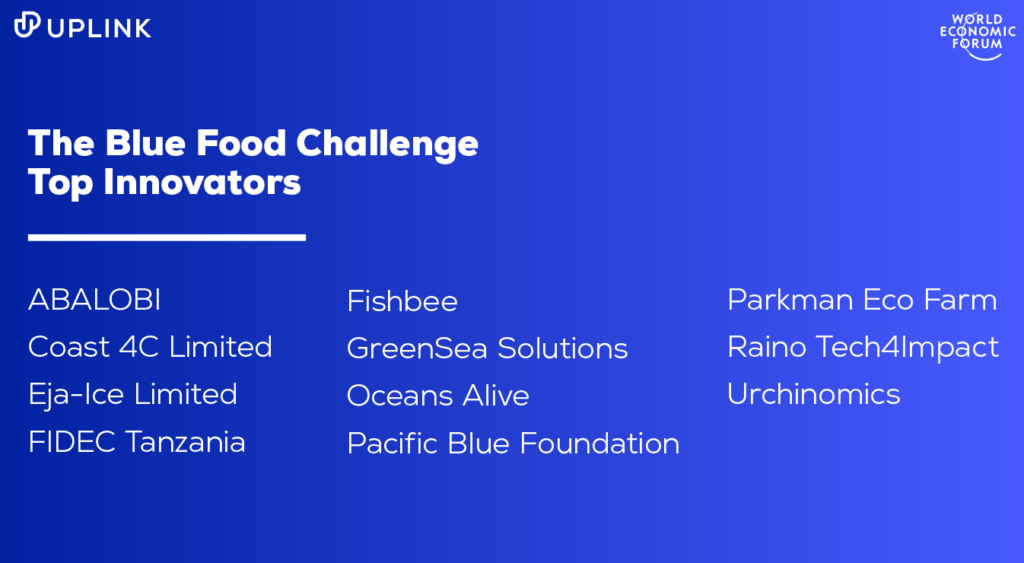This excerpt is from a World Economic Forum Agenda post by Emily Kelly, Community Success Lead for UpLink Ocean. Read the full post here.
Blue foods – fish, invertebrates, algae and aquatic plants captured or cultured in freshwater and marine ecosystems – have traditionally been undervalued in their contribution to global food systems. Yet they are incredible sources of locally produced nutrition for millions of people. The UN Food Systems Summit calls for global action on food system transformation and blue foods are an avenue for this transformation. The Blue Food Assessment, a scientific assessment of blue foods and their potential to contribute to sustainable and just food systems, reveals gaps where innovation could meaningfully bolster the blue food ecosystem.
Friends of Ocean Action and UpLink launched the Blue Food Challenge in order to uncover innovations to help accelerate the integration of aquatic foods into global food systems. This challenge was run with the benefit of four partners: X (Alphabet), Stanford Center for Ocean Solutions, WorldFish, and Centre for the Fourth Industrial Revolution Ocean.
The challenges called for solutions that will; sustainably increase the production (farmed or fished) of blue foods with high nutritional value to local people, as well as provide economic benefits to local communities; and that minimize food loss and waste to better meet the nutritional needs of people, including through blue food storage and preparation, and the improved use of by-products along value chains. We particularly encouraged interventions which provide technology support for small-scale producers and those that promote gender equality across the blue food system.
The 70 contributions to this challenge were reviewed first by experts in aquatic foods and related fields and then shared with our selection committee. We now welcome 11 entrepreneurs to be Top Innovators in the Blue Food Cohort, the third ocean cohort on UpLink.

